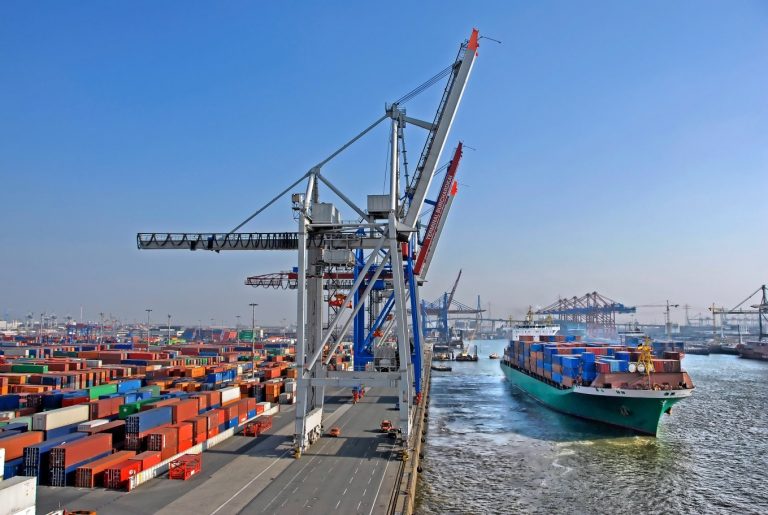Workplace safety is never more important than when you work at sea. From drowning to falling to slipping on the deck, maritime employees face a variety of serious threats on a daily basis, which employers are responsible for protecting them from. The Jones Act establishes your rights as a seaman, allowing you to hold accountable any employer who does not adequately protect your safety.
Background & Basics
The Merchant Marine Act of 1920, more commonly known as the Jones Act, is a Federal law designed to protect and maintain the United States merchant marine system. Though the law covers a wide range of maritime topics, it is notable for its provisions on maritime worker safety. The act enshrines the rights of seamen to bring legal charges against their employers if the latter’s negligence causes them serious injury. If you can prove that your employer violated the Jones Act, you are entitled to compensation for the costs of your injury, which include:
- The price of medical care, including treatments for the long-term effects of the injury
- Lost wages that you were unable to earn because you were undergoing medical treatment, or because of disability that resulted from your injury
- Pain and psychological suffering that result from your injury, as well as the cost of counseling
- Loss of consortium, loss of enjoyment, and other effects that impact your quality of life
The Jones Act law establishes a significantly lower burden of proof for compensation than most other personal injury cases have. Whereas most cases require the plaintiff to prove that their employer was the primary cause of the harm, the Jones Act requires you to show only that they played a role in the injury. This makes it clear that it is the responsibility of maritime employers to safeguard the rights of their workers in all circumstances, no small matter in an industry with so many risks.
Jones Act Jurisdiction
For the Jones Act to apply to you, you must fit the following characteristics:
- Vessel Validation– You must have been part of the crew of a commercial vessel at the time of your injury. A wide range of ships and boats qualify, including tankers, fishing vessels, casino boats, tug and tow boats, restaurant ships, barges, and freighters. It does not matter whether the boat was moored or in motion at the time you were injured.
- Seaman Status– You must qualify as a seaman for the Jones Act to apply. The Supreme Court has defined this as anyone who spends at least 30 percent of their working hours serving a vessel that is in navigation. You may also qualify if your work is covered under the Longshore and Harbor Workers’ Compensation Act. If there is any doubt, consult a Jones Act attorney for help determining whether you are a seaman.
- Location Limitations– You must have been on board the boat at the time that you contracted the injury. The law does not apply if you were on a nearby dock, even if you qualify as a seaman. You also must have been on the boat primarily so that you could aid in its mission.
- Navigable Nuances– The injury must have occurred while the boat was on a body of water that is considered navigable. Oceans, gulfs, large lakes, and large rivers usually qualify, but as with seaman status, you should check with an attorney before filing. If the water is not navigable, your case will have to be filed under land-based laws instead.
To benefit from the Jones Act law, you must file your claim no more than three years after the injury occurred. It is thus important to begin the filing process as soon as possible in case there are delays. You can file the claim in a state court as an admiralty claim, or in a Federal court as either an admiralty or a law claim. Where and how you file may impact the amount of compensation you get, so make sure to discuss the case with your attorney before you decide.
Valid Violations
There is a myriad of things that can go wrong on the ocean, and thus a myriad of ways that your employer can fail to keep you safe. You can file Jones Act claims for injuries resulting from:

- Sub-par Safety– Your employer must provide a safe environment for you to work in. This means cleaning up spills, cordoning off slippery or damaged walkways, keeping all sections of the hull in good condition, and providing training so that you know how to do your job competently. They must also distribute appropriate safety devices to employees who are performing especially dangerous jobs. Overlooking any of these duties can cause serious injury or death.
- Damaged Devices– To do your job safely, you must have equipment that is up to date and in proper working order. This means that the employer must regularly inspect all equipment, repair or replace devices that are not working correctly, and inform all members of the crew not to use equipment that is damaged.
- Crew Chaos– The employer is responsible for the actions of all other members of the crew. Thus, if another crew member assaults you or causes you to be injured through negligence, the employer must be held accountable for failing to keep them in line. The employer may also be at fault for failing to assemble a competent crew if your injury is the result of another seaman’s poor judgment.
- Reticent Rescue– If you jump or fall off of the ship, the employer is responsible for making every effort to rescue you. Failing to respond quickly enough or to devote the appropriate resources is grounds for a lawsuit.
- Medical Matters– If you become sick or injured on the ship, the employer must provide you with the proper medical care. Failing to provide the right care may lead to much more serious medical problems down the road, for which the employer will be responsible.
Understanding the scope of violations is one of the most important ways you can gain the upper hand over your employer in Jones Act claims. Many employers assume that if another employee assaults you or neglects your safety, for example, it is that employee’s fault, and any compensation you might win must come from them. Likewise, if equipment does not work properly, the employer might expect you to blame the manufacturer. The last thing they want you to realize is that they are responsible for everything that happens on the ship.
Your employer may also expect you to think that if you assume the risks before the injury happens, you cannot hold them accountable. But the fact that you were aware of the danger does not absolve them of their responsibility to maintain a safe ship. The Jones Act law makes it clear that they are responsible for all of the results of their negligence, not only those for which you were unaware of the risks.
Savvy Steps
As with any personal injury case, the quicker and more decisively you act, the more likely your Jones Act claims are to succeed. If you were injured while working on a commercial vessel, make sure to take the following steps:
- Pursue Proof– As soon as you are in a stable condition, gather as much evidence as you can. Take pictures of the accident site, and gather the names and contact information of nearby coworkers, employees, and any other witnesses. If your injuries are too severe for you to do this yourself, ask a trusted co-worker to do it for you.
- Commit To Care– Seek out medical treatment as soon as possible, and follow the instructions of your care providers to the letter. Try to keep a record of all the treatments that you receive, and ask your care providers for their names and contact information. This will allow you to refute any accusations that your injuries would not have been as severe if you had not neglected your own care.
- Locate A Lawyer– Consult a qualified Jones Act attorney as soon as possible. Ask them if you qualify for compensation under the Jones Act, and answer any questions they ask you as honestly and comprehensively as you can. If they determine that you qualify, file your claim as soon as possible according to their instructions.
- Consider The Costs– Keep detailed records of all the expenses that result from your injury. Make sure to obtain and store receipts for any bills that you pay out of your own pocket, as it will otherwise be difficult to prove that you paid them. Also, keep a record of indirect expenses, such as days of work you have to miss due to treatment or disability.
- Speak Sparingly– Try to avoid talking to your employer or their lawyers about the case when your attorney is not present. If you do have to talk to them, avoid signing anything or sharing key details of the case. The more information you give them, the greater the chance that they will find a way to counter your claim.
- Record The Results– Keep a daily log of all your experiences after the accident. Write down anything that may result from your injuries, including pain, mental anguish, and trouble sleeping. The more detailed your record, the easier it will be to identify subtle effects of the injury for which you deserve to be compensated.
Holding your employer accountable under the Jones Act is not just about getting compensation for yourself, though that would be reason enough. It’s also about protecting your fellow seamen. If an employer pays no price for neglecting your safety, they have no reason to show any more care in the future. Demanding compensation sends a powerful message that seamen’s rights cannot be ignored. The more that employers are held accountable for their past negligence, the more they will care for employees in the future, ensuring a safe maritime working environment.
No maritime employer should get away with putting their workers at risk. For more information about your rights under the Jones Act, contact Maintenance and Cure at {email}, call {phone}, or visit our website today.







